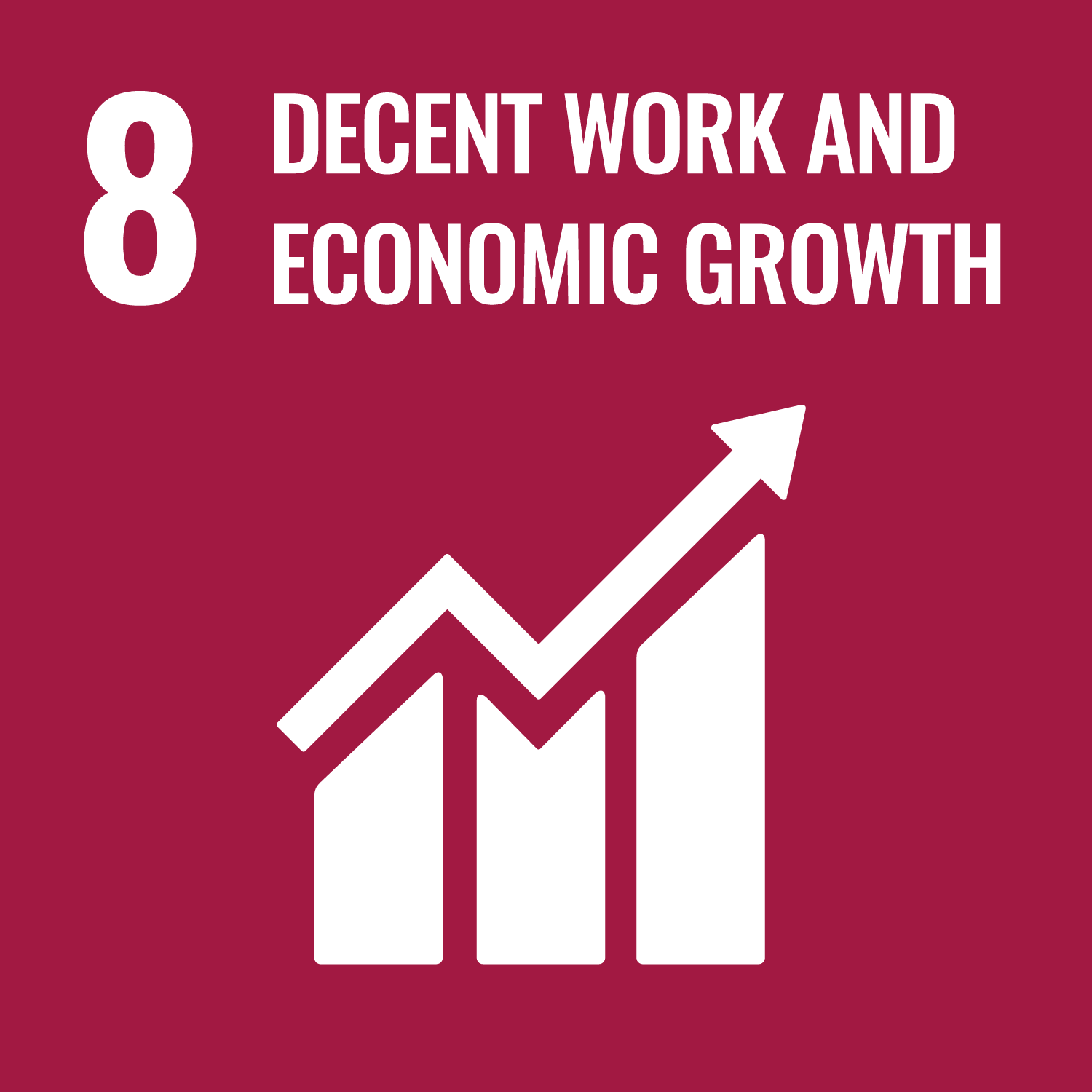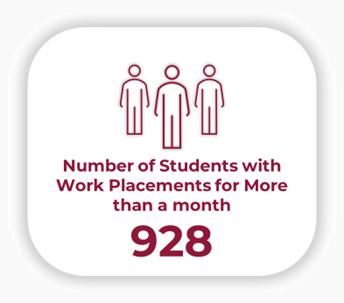
SDG #8: PROMOTE SUSTAINED, INCLUSIVE AND SUSTAINABLE ECONOMIC GROWTH, FULL AND PRODUCTIVE EMPLOYMENT AND DECENT WORK FOR ALL

“Sustainable Development Goals (SDG) 8 focuses on promoting sustained, inclusive, and sustainable economic growth, full and productive employment, and decent work for all.“
– United Nations
Universitas Pertamina’s commitment to creating a decent work environment and sustainable employment can be seen through the various policies and regulations that are applied in the workplace.
The wages, salaries, allowance (tunjangan), honorariums of staff and lecturers, incentives and compensation of Universitas Pertamina’s staff is regulated through:
Rector’s Regulation Number 0007/UP-R/SK/III/2017 Perubahan Honorarium-Insentif-Kompensasi Universitas Pertamina
Rector’s Regulation Number 0011A/UP-R/PER/HK.00/VII/2021 – Status Kepegawaian Dosen dengan Nomor Induk Dosen Khusus
Rector’s Regulation Number 017/UP-R/PER/VIII/2017 Article 2 Verse 1 – Perubahan atas Peraturan Rektor Mengenai Kepegawaian Universitas Pertamina
Universitas Pertamina acknowledges employee unions, this is written in the Rector’s Regulation No. 004 of 2016 Article 35 concerning Employee Organisations.
Universitas Pertamina’s employee recruitment is conducted openly without discrimination based on ethnicity, religion, or race, and is carried out according to planning and needs of the institution. This is shown through the Rector’s Regulation No. 0004/UP-R/PER/VI/2016 Article 11, Verse 1 about Kepegawaian Universitas Pertamina; Rector’s Regulation No. 002F/UP-R/PER/V/2016 Chapter 3, Article 4, Verse 1 about Guidelines for Recruitment and Selection of Lecturers and Academic Staff; Rector’s Regulation No. 002I/UP-R/PER/V/2016 article 31 verse 4 about Human Resource Management; and Rector’s Regulation No. 003/UP-R/PER/VI/2016 article 8 verse 5 about Kode Etik Dosen.
There is no forced labor in Universitas Pertamina, as there are recruitment practices in accordance with the Rector’s Regulation No. 0004/UP-R/PER/VI/2016 article 9 about Kepegawaian Universitas Pertamina.
The absence of modern slavery (modern slavery/exploitation) is shown through the limitation of working hours, and any additional work outside of the primary duties will be compensated or incentivized. Employees also receive benefits and have access to Leave (Rector’s Regulation 0004/UP-R/PER/VI/2016 Articles 16, 17, 21, and 30; and and Rector’s Regulation Number 017/UP-R/PER/VIII/2017 Article 3.)
Outsourcing workers from third parties are regulated in the Rector’s Regulation No. 0004/UP-R/PER/VI/2016 Articles 3 and 4; as well as the Rector’s Regulation No. 017/UP-R/PER/VIII/2017 Article 2 where the rights and obligations of employees are the same.
At Universitas Pertamina, the employees receive their wages in accordance with their workload, work performance and responsibilities (Rector’s Regulation No. 017/UP-R/PER/VIIV2017 Article 2).
The Rector’s Regulation No. 002I/UP-R/PER/V/2016 Article 20 about Management of Disciplinary Actions and Employee Complaints encompasses the managing the handling of disciplinary violations and employee complaints, including mechanisms for reprimands, written warnings, disciplinary actions, and assistance in resolving complaints.
Employees can also voice their disagreement (keberatan) on their Performance Appraisal Review (PAR), this is shown in the Rector’s Regulation No. 002G/UP-R/PER/V/2016. Chapter 5 Article 9.
Universitas Pertamina also conducts an Employee Satisfactory Survey that is regulated in the Rector’s Regulation No. 0012B/UP-R/PER/V/2017.
The Rector’s Regulation No. 017/UP-R/PER/VIII/2017 also contains the rights of the employees.
Universitas Pertamina provides its students with the opportunity to gain work experience through programs such as Internships and Merdeka Belajar Kampus Merdeka (MBKM). These programs allow students to develop practical skills and broaden their understanding of the industry, preparing them to face challenges in the workforce after graduation. In the 2022/2023 academic year, a total of 928 students were placed in work placements lasting more than one month. This reflects the university’s commitment to supporting students’ career development and providing valuable hands-on experience across various industries. These initiatives also align with the university’s vision to produce competent graduates who are ready to enter the workforce and compete in the global market.


